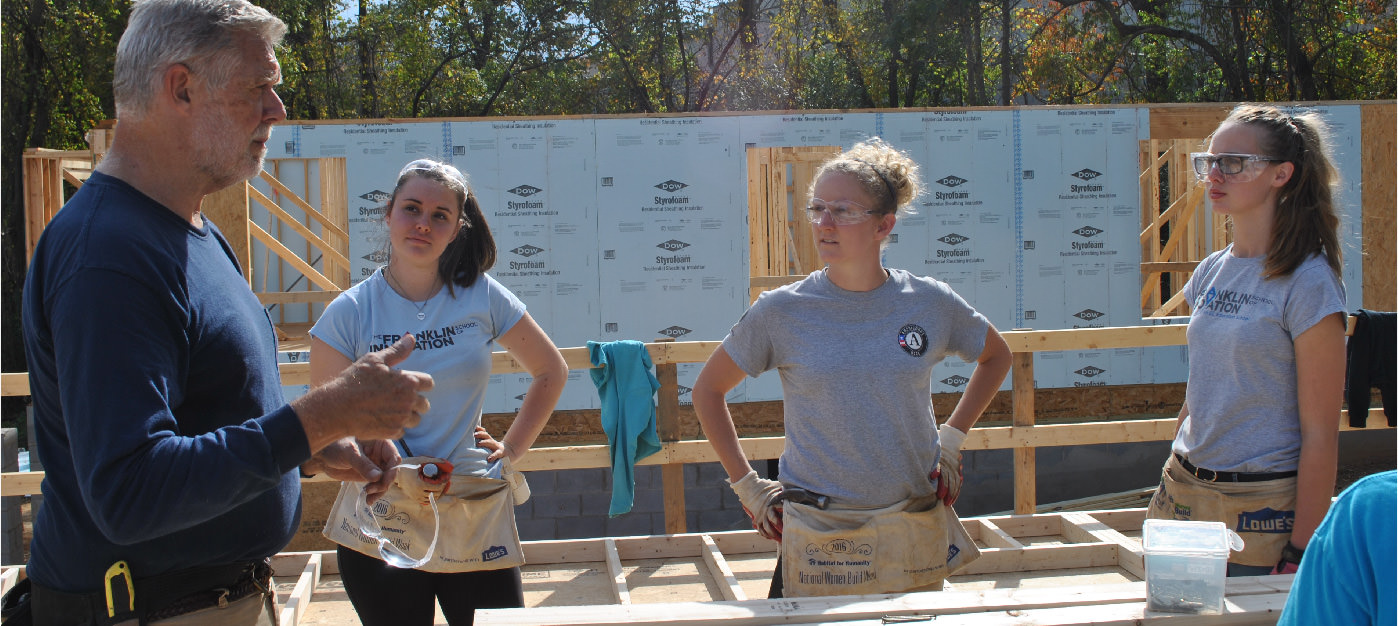Download our e-book – Parents’ Guide to EL Education
EL Education (formerly Expeditionary Learning) is a different approach to education, where students learn through doing, and time is devoted to building relationships and developing character. Teachers design curriculum and projects that connect to big ideas, engaging students in problem-solving and deep thinking. Students set goals for their own learning and for their growth as citizens and leaders. Time is set aside to build relationships and create community.
EL Education is a non-profit organization that grew out of a partnership between the Harvard School of Education and Outward Bound. For over 25 years, EL Education has partnered with schools all across the US to create a network of schools combining the character-based approach of Outward Bound with its focus on teamwork, courage, and compassion, with an active approach to learning in and out of the classroom.

EL Education promotes learning that is both rigorous and joyful. Students learn deeply though challenging, collaborative work. Schools in the EL network define student achievement to include mastery of skills and content, combined with character development and the production of high quality work. Schools that fully adopt the EL Education approach regularly outperform surrounding schools on student achievement measures.
Read more in our e-book: A Parents’ Guide to EL Education
Some of the EL structures at Franklin that support student learning include:
Crew
One of the most important factors contributing to student achievement is the relationship between the student and his/her teachers. Students learn best when they feel that someone knows and cares about them as individuals. Each student at Franklin is a member of a Crew. In Crew teachers and students develop strong relationships and practice skills for success. Crew curriculum includes topics like Growth Mindset, leadership, goal-setting, conflict-resolution, and service, as well as college and career exploration.
Learning Expeditions
These long-term, teacher-designed studies bring learning beyond the classroom walls. Students practice original research, critical thinking, and problem solving. Learning Expeditions are directly tied to curriculum standards, and focus on developing literacy as well as persistence, leadership, and collaboration. Expeditions end with celebrations of student learning, sharing final student products with authentic audiences. Students participate in at least one multidisciplinary expedition each year.
Student Led Conferences
Twice each year, students lead these presentations, sharing their goals and progress with their parents. Student Led Conferences (SLCs) represent a deliberate shift from a traditional parent-teacher conference, where students are often not present and rarely play an active role. In contrast, SLCs place students at the center of their own learning, while recognizing that parents and teachers play active supporting roles. In preparing for SLCs, students practice skills of goal-setting, reflection, and public presentation.
8th and 10th Grade Passages
The transition from 8th grade into high school, and again from 10th grade into the final two years of high school, are significant points of passage for students. Through Passages, we recognize these transitions and celebrate student growth. Passages are formal presentations in which students demonstrate their readiness to move on to the next level of their education. Students prepare portfolios, sharing examples of their work that demonstrate mastery of academic standards as well as development of habits of scholarship and student self-assessment. Students present their portfolios to faculty, parents, and community members.
9th Grade Adventure
Franklin partners with Adventure Treks, a non-profit outdoor education program, to provide a 4-day backcountry program in the beautiful Pisgah National Forest. Students gain outdoor skills, develop respect for and knowledge of the natural world, strengthen leadership and collaboration skills, learn from their mistakes and celebrate their collective successes.
Service Learning
Projects that provide service of real value and that are aligned with academic content are incorporated in Learning Expeditions and in individual courses. As an example, Franklin participates in the Habitat for Humanity student home build, raising funds for and helping to build a home for a family in the Asheville community.

